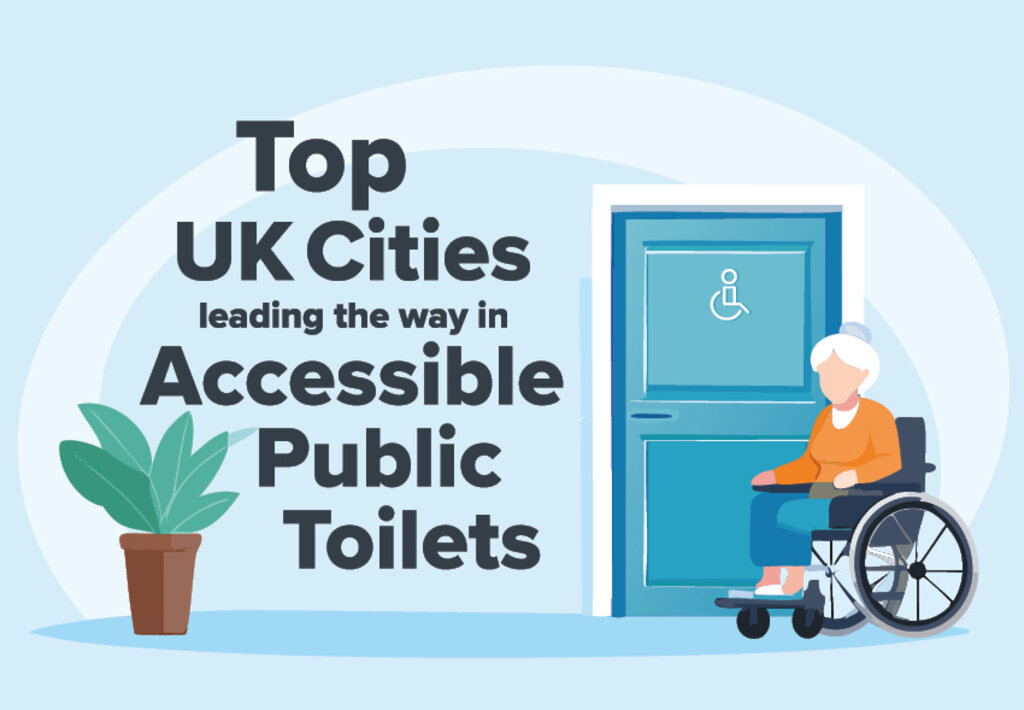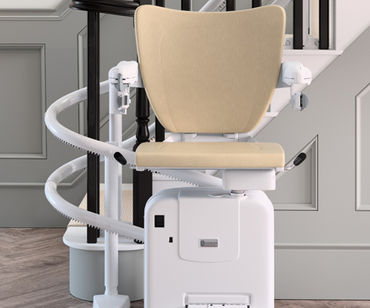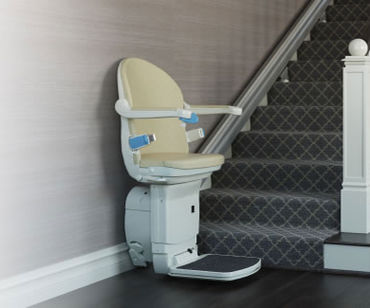UK cities leading the way in accessible public toilets

Public toilets provide an important service to the UK population, but how accessible are they for those with limited mobility?
To find the answer, this study analysed publicly available data to determine which city has the highest percentage of accessible public toilets. The study also analysed which cities boast the greatest number of Changing Places toilets for a comprehensive accessibility perspective.
Explore the findings below to discover which UK location is leading the way and how your nearest city fares in offering accessible toilet facilities.
Key findings
- Ely is the UK city with the highest percentage of accessible public toilets.
- Coventry and Chichester rank in second and third place, respectively.
- London has the highest number of Changing Places toilets, followed by Leicester.
- London has the highest total number of accessible toilets, followed by Bristol.
Which cities have the highest percentage of accessible public toilets?

What is an accessible toilet, and what are Changing Places' toilets?
Before we delve into the cities with the highest percentage of accessible toilets, it is important to understand what they are. Accessible toilets are designed to meet the needs of independent wheelchair users and people with mobility impairments.
Standard accessible toilets are designed for independent use, and they include features such as a higher toilet pan, grab rails, lever taps/paddle flush, an outward-opening door and an emergency call bell.
Changing Places toilets are larger than standard accessible toilets and have extra features and more space. They are designed for dependent use, for example, for people with a carer.
Common facilities in Changing Places toilets include a tracking hoist system or mobile hoist, adjustable adult-sized changing benches, as well as the height of the toilet and hand basins being accessible to people with limited mobility.
Some of these public toilets may require you to use a radar key, and these keys are offered to disabled people by the National Key Scheme (NKS) to allow them access to locked public toilets around the UK.
ALSO READ: A Guide to Accessible Public Transport
UK cities ranked by the percentage of accessible public toilets
Which city has the highest percentage of accessible toilets?
- Ely
- Coventry
- Chichester
- Londonderry
- Lisburn
Ely in Cambridgeshire has the highest percentage of accessible toilets in the UK. According to the data, this picturesque city has 12 public toilets, 10 of which are accessible to members of the public with limited mobility and wheelchair users—meaning 83.33% of the toilets in the city are accessible.
Coventry came in a close second, as 82.61% of the city’s public toilets are deemed accessible (19/23 public toilets). Chichester came in third with 76.19% (16/21) of its public toilets accessible to members of the public with limited mobility, whilst the Northern Irish cities of Londonderry (73.68%) and Lisburn (71.43%) rounded off the top five cities in the UK.
Which city has the most accessible toilets?
Unsurprisingly, the city with the highest total number of accessible toilets is London. The capital and largest city in the UK has 262 accessible toilets, which is more than double the number of accessible toilets in Bristol, which has the second-most (101).
Brighton & Hove Albion ranks third for the most accessible toilets, with 45 accessible toilets located in the city, whilst Sheffield (44 accessible toilets) and Glasgow (39) were close behind.
Below is a list of the top 10 cities which have the most accessible toilets:
- London: 262
- Bristol: 101
- Brighton & Hove Albion: 45
- Sheffield: 44
- Glasgow: 39
- Leeds: 34
- Portsmouth: 33
- Edinburgh & Oxford: 32 each
- Newcastle-upon-Tyne: 29
- Nottingham: 27
ALSO READ: The most accessible attractions in London
Which city has the most Changing Places toilets?
The study found that London is the city with the most Changing Places toilets in the UK, with an impressive 29 available to the public across the city. Leicester has the second highest with 25, followed by Leeds (22) in third, Manchester (17) in fourth and Dundee, Edinburgh and Glasgow (16) all in joint-fifth place.
Below is a list of the top 10 cities in the UK with the most changing places toilets.
- London: 29
- Leicester: 25
- Leeds: 22
- Manchester: 17
- Dundee, Edinburgh & Glasgow: 16
- Nottingham: 15
- Kingston-upon-Hull & Sheffield: 13
- Aberdeen, Belfast, Newcastle-upon-Tyne, Portsmouth: 12
- Bristol, Cardiff, Preston, York: 11
- Bradford, Doncaster, Liverpool, Southampton: 10
ALSO READ: How to have an accessible beach break
Other findings
- 51 out of 75 cities have less than 50% accessible public toilets.
- Only three cities have over 75% accessible public toilets.
- The average percentage of accessible public toilets in UK cities is 40%.
- The average total number of accessible public toilets per city is 15.
- Northern Ireland has the highest average percentage of accessible toilets with 60% (England has 40%, Scotland has 36%, and Wales has 24%).
- Cites with less than 50% accessible public toilets include London, Newcastle, Birmingham, Plymouth, Liverpool, Nottingham, Portsmouth, Derby, and Swansea.
- According to the Great British Public Toilet Map, Lichfield, Perth, St Asaph, and St Davids are the only cities in the UK that do not have accessible public toilets. St Asaph also does not have Changing-Places toilets.
Methodology
This study analysed the available data from the Great British Public Toilet Map for each city in the UK.
Taking the total number of public toilets per city and the total number of accessible public toilets per city, we created a ranking that determined which location has the highest percentage of accessible public toilets.
We also analysed data from Changing-Places.org, which allowed us to rank each city by its total number of Changing Places toilets.
Original data can be found here.
The accessibility of toilets in UK cities
The fact that less than half the public toilets are accessible in a large number of UK cities (51/75) indicates that there is lots of room for improvement in this area.
While it's great to see smaller cities leading the way regarding access to public disabled toilets, hopefully, the UK’s biggest cities can do even more to make their public facilities more accessible.
This analysis was brought to you by Companion Stairlifts. If you need help making your home more accessible, browse our range of stair lifts and book a free home assessment.



